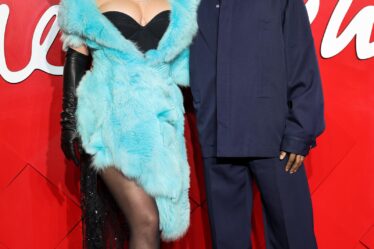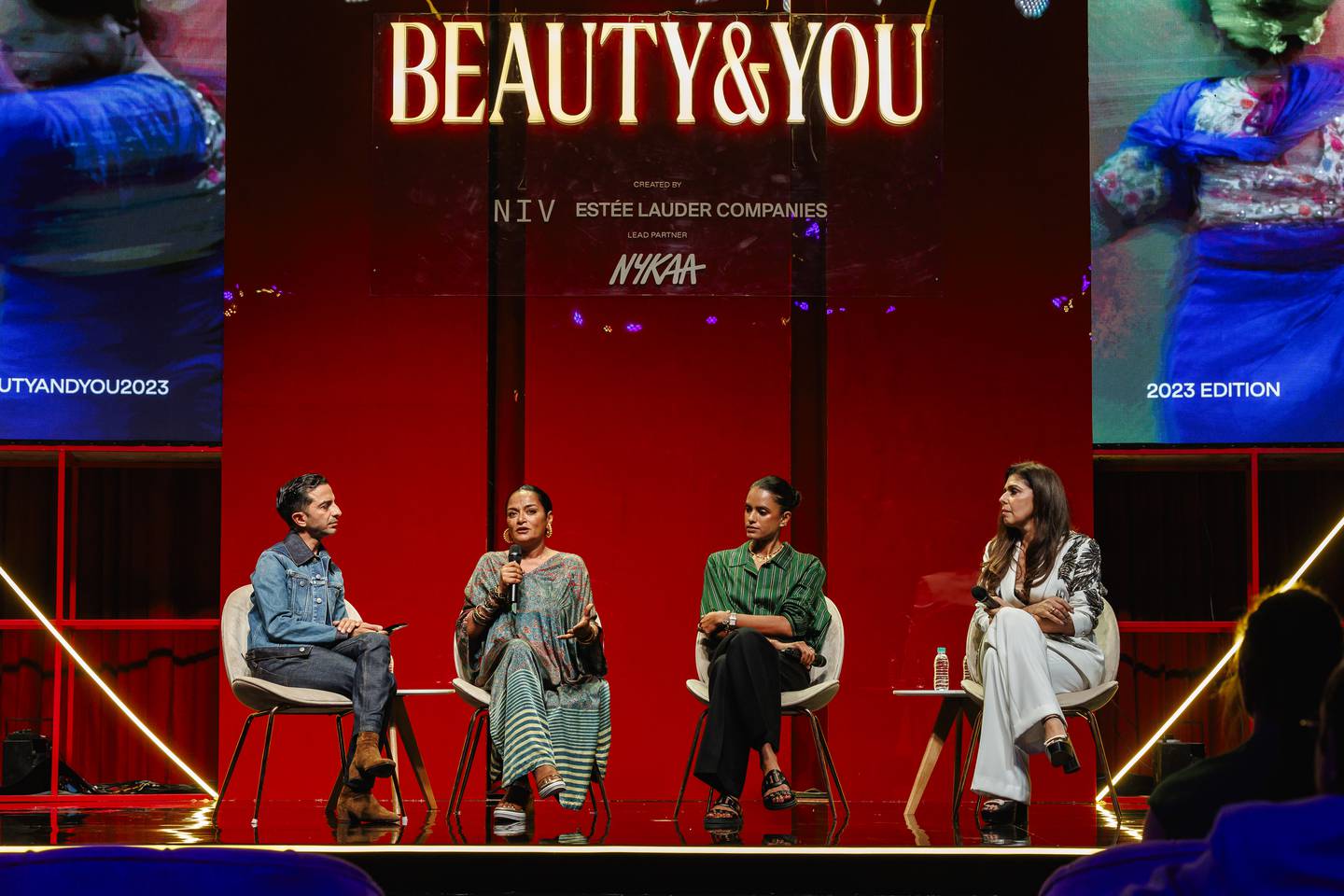
The world’s most populous country, India is among the most culturally diverse countries in the world. With more than 40 percent of India’s population under the age of 25, a new generation of entrepreneurs and creators building brands with purpose and innovation within the Indian beauty and personal care industry, which Euromonitor cites as a $16.5 billion market in 2023. The Estée Lauder Company’s New Incubation Ventures (NIV) brought together the next generation of beauty entrepreneurs and creative talent in partnership with the Indian beauty retailer and industry disruptor Nykka for their second annual BEAUTY&YOU India Awards programme.
As Shana Randhava, senior vice president of NIV The Estée Lauder Companies (ELC), shared in her opening remarks at the event: “The 2023 BEAUTY&YOU Awards were designed to expand the scope, scale, and definition of beauty across all aspects of the ecosystem and the entire world — from innovative founders to R&D experts, creative photographers, film makers and experiential artists.”
NIV is ELC’s early stage investing, venture capital and incubation arm, created in 2021 to identify and catalyse the next generation of prestige beauty brands globally. NIV’s mission is to shape the future of ELC’s strategy in emerging growth areas, including new categories, regions, consumer segments, platforms and business models. NIV has closed eight investments since it was established in 2021.
The awards are split across six categories, with four main awards: Imagine, aimed at pre-launch and pre-revenue founders; Grow, focused on revenue generating companies with at least one point of sale; Breakthrough, for applicants from research and development (R&D) and active ingredient expertise; and Create, the category for creatives including photographers, makeup artists, hair stylists, directors and artists. Imagine, Grow, Breakthrough and Create were deliberated on by the prestigious jury of 14 judges on the day of the awards, while two supplementary awards — the Community and Impact categories, were chosen by a special review of applications by a jury.
Founders and companies based outside of India were invited to apply so long as the product concept or business plan was focused on Indian consumer needs. This year, the size of the applicant pool was doubled with over 600 entries from around the world, including the US, New Zealand, South Africa and the UK, and across more than 150 global cities. The goal is to platform the “next set of entrepreneurs who will take Indian beauty to the global stage,” explained Anchit Nayar, executive director and CEO of beauty, Nykaa.
Interspersed with the presentation of each award, Imran Amed, the founder and CEO of The Business of Fashion (BoF), alongside Priya Rao, executive editor of The Business of Beauty at BoF, moderated three panel discussions, designed to “inject some context, learning and inspiration into the proceedings,” explained Amed.
The first panel featured three individuals intimately involved in the launch of Vogue India in October 2007. Anaita Shroff Adajania, stylist, former fashion director of Vogue India and founder of Style Cell was joined on stage by model Lakshmi Menon and Bandana Tewari, lifestyle journalist, sustainability activist, and former Vogue India fashion features editor.
The conversation began with Amed asking the panel to reflect on the cover of Vogue India’s first edition in October 2007, which featured Australian model Gemma Ward front and centre, flanked by actresses Bipasha Basu and Priyanka Chopra, shot by Patrick Demarchelier, with models Lakshmi Menon, Monikangana Dutta, and Preity Zinta featuring on the gatefold cover.
“Everybody would call me about it and say, ‘the cover was whatever but this inside story, that feature — you’ve knocked it out of the park. That’s what India really is and that’s who we are,” said Tewari, referring to an editorial styled by Shroff Adajania, featuring Menon and shot on location in a hotel in Goa.
The story focused on the traditional erogenous zones in Indian culture: the nape of the neck, the ankle, fingers, and showcased the creativity and craftsmanship of its ancient temple jewellery culture — part of India’s uniquely unbroken 5,000 year old aesthetic and spiritual culture, accompanied by words written by a temple jewellery expert, commissioned by Tewari.
“We had a lot of freedom because it was a space where the Western powers didn’t know what I was meant to do, so we were left to be ourselves and we were ourselves,” she continued.
“That was a true representation of what Indian Vogue could have been versus the tokenism of inclusion,” said Menon. “I mean, bringing these people together and having a non-Indian perspective and non-Indian shooting it, styling it, doing the hair and makeup, all of it. […] If this is going to be your debut issue, you have to include the country and everybody, right? That’s what makes it Indian Vogue and that’s where we missed it,” she continues.
To conclude, panellists were asked for the one piece of advice or insight that they wanted to share with the world to aid in better understanding and greater respect for Indian beauty.
I feel [the global industry] underestimates the power of the beauty revolution that’s happening here.
“Judging these awards earlier today, the one thing that came out repeatedly was that there’s no research on women of our skin colour. It’s all westernised. I feel [the global industry] underestimates the power of the beauty revolution that’s happening here. Honestly, it is more of a beauty revolution than a fashion revolution. […] There is a direction that we need to give, and I think the world needs to see that,” said Shroff Adajania.
“When you look at India as a country from the north to the south, east to the west, we’re so different looking. You can’t have just one [person represent us]. […] [India] is diverse in its culture, in its physical types, in so many different ways, to just reduce India to one or two faces [is] absolutely unfair. India is an amalgamation of many Indias,” said Menon.
“We live in a country where the diversity [is] always immense,” added Tewari. “This is not a country. It’s a continent. This is not just about being brown and being accepted as brown. I come from Sikkim, I’m from the mountains. The seven Sisters of the East border Bhutan, Cambodia, Myanmar, Nepal, Tibet. We keep on talking about celebrating being brown but it’s even more expansive than that.”
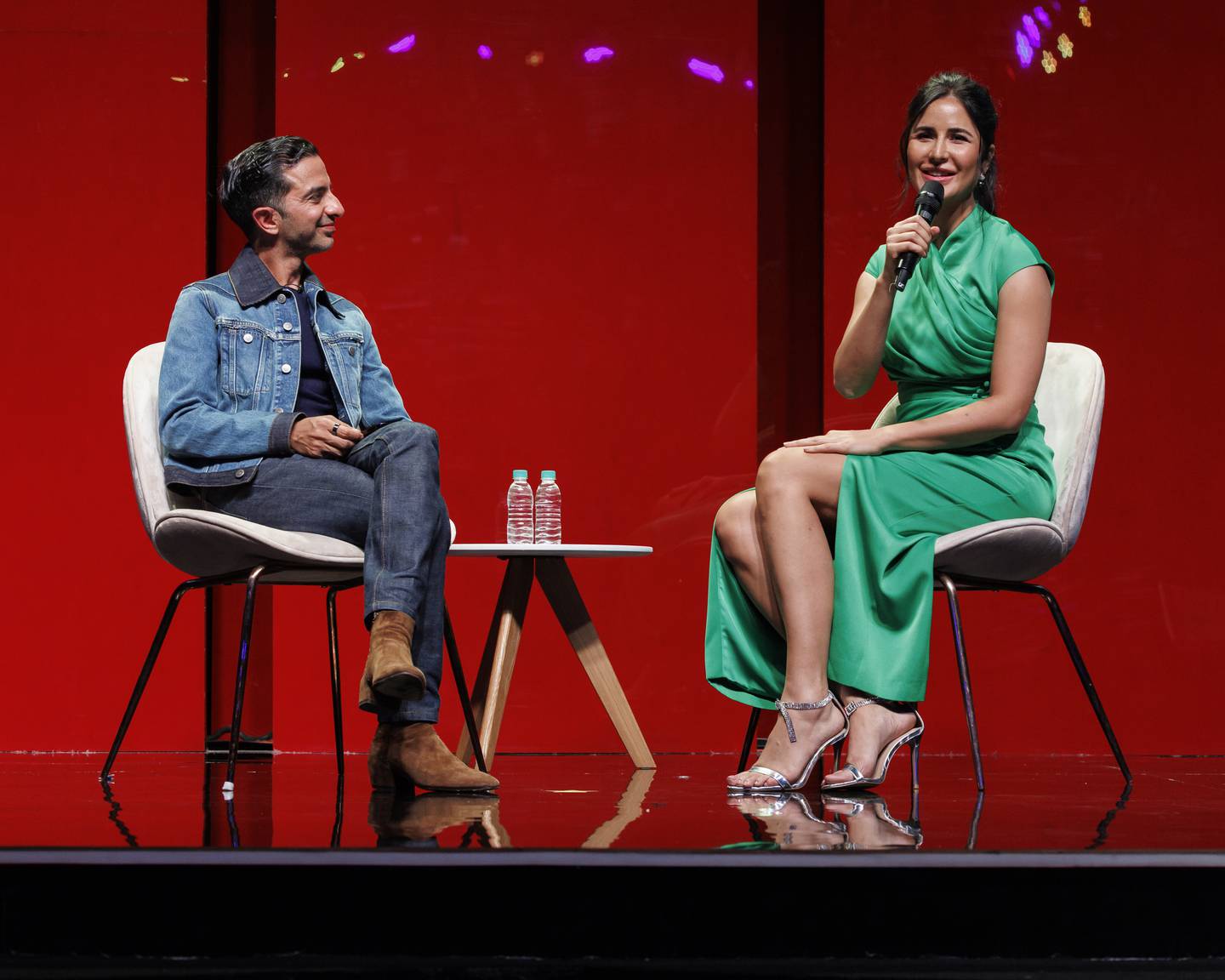
For the second panel, Katrina Kaif, one of India’s most celebrated and followed actresses, who has topped the annual rankings for the most Googled Indian on three occasions, joined Amed on stage. Kaif’s business, Kay Beauty, created in partnership with Nykaa, is one of the Indian beauty market’s most successful brands. While discussing how her star power has impacted the trajectory of her brand, and the reasons why her celebrity beauty line continues to find success as other celebrity brands fail, Kaif was candid.
“There are many people who can get away with quickly launching, putting tons of marketing money behind [their brand] to get to a higher revenue and sell the company. And that’s the end product. But we did not do that. We’ve really done the groundwork, getting the manufacturing, getting the formulations right.
“The consumer can see the truth. We can see a lot of examples around us of people that can get to a certain level. But can you sustain that model of how you built your business? The biggest learning for me is patience. Slow and steady wins the race.”
As to how Kaif’s approach was distinct, the actress and entrepreneur believed her go-to-market strategy was the distinguishing factor in her success. Building on her experience of doing her own makeup for over nine years of her professional career, including some of her most iconic Bollywood roles and songs, Kaif was intimately involved in the creation of her brand.
The biggest learning for me is patience. Slow and steady wins the race.
“Product is key. Firstly, you have to understand your product. Secondly, you have to know who your consumer is and that marriage has to happen because if that marriage is not a success, you can have an incredible product that doesn’t reach the right consumer.
“I would really give a lot of credit to my partners, who had so much incredible data from the Indian consumer who were able to kind of keep me in control. So if I wanted this very intricate, heavy packaging, they would say: ‘Well, do you want this packaging or do you want this quality in your product? For me, product is king and that’s why I think we received so much love for it, from the consumer and from the beauty industry as well, because people are so surprised — and they shouldn’t be,” she continued.
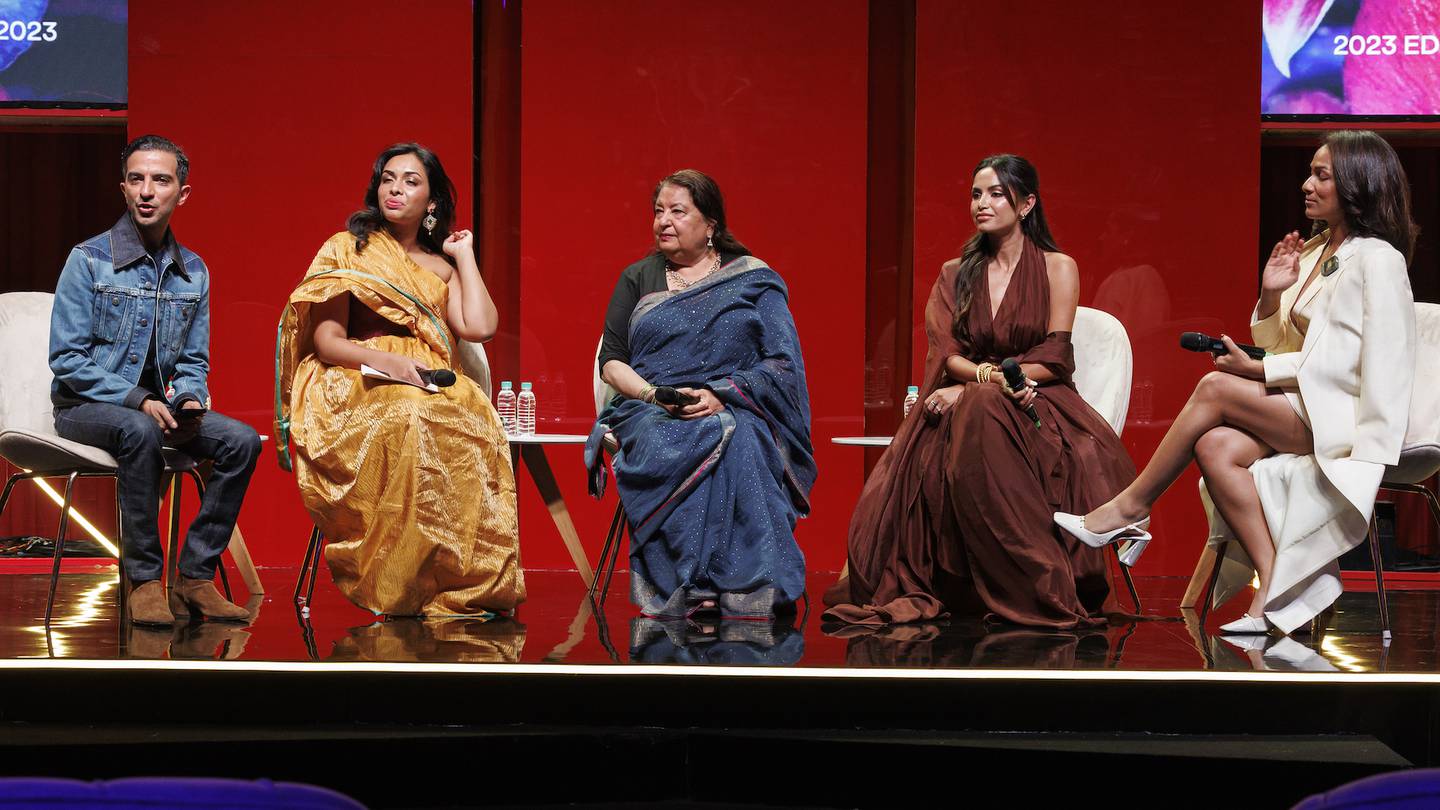
For the final panel of the evening, BoF’s Amed and Rao were joined by the entrepreneur Masaba Gupta who, in addition to her Netflix show ‘Masaba Masaba’ and fashion line The House of Masaba, founded beauty business Love Child, as well as Diipa Büller-Khosla, the founder of the Indē Wild community and business brand, and Anita Lal, whose popularity in India and homeware business Good Earth.
Each the founder and CEO of a passion project that has become a significant commercial enterprise, panellists were asked to share how they had built their unique experiences and interests into businesses.
“I think beauty and the way you sell a beauty product is identity — the way consumers see themselves in the product,” said Khosla. “As an Indian born, Europe-raised international student, I felt a very clear friction point and a beautiful friction point [growing up].
“On the one hand, I loved tradition — my culture, my mother, my grandmother, our weddings, our food and ayurveda. I loved it. At the same time, I believed in science and fact and innovation and I wanted to marry who I wanted to marry, and I wanted to be financially independent. When I looked at the beauty products that were given to us, I didn’t see that friction point at home or abroad. I felt combining the two was my identity and hence my way of modernising ayurveda,” she added.
I feel like it is my responsibility as New India, as young India, to make sure that we are making sure Indians take notice of what we have.
“I think that it’s time that India stood up and took notice of India. We’ve been exoticised by the West for so long now. We have failed in many ways to see our own location. I feel like it is my responsibility as New India, as young India, to make sure that we are making sure Indians take notice of what we have. The treasure chest of inspiration that we have within India,” added Gupta. “For example, Love Child [Masaba] is a brand that proudly caters to Indian skin tones. I’m mixed myself. I’m half black and half Indian or Afro-Punjabi. In an age of influence, I think what we want to do is inspire.”
“As an entrepreneur, you learn every day. I am still learning, I am still trying, but 30 years have flown, through passion and never giving up,” said Lal.
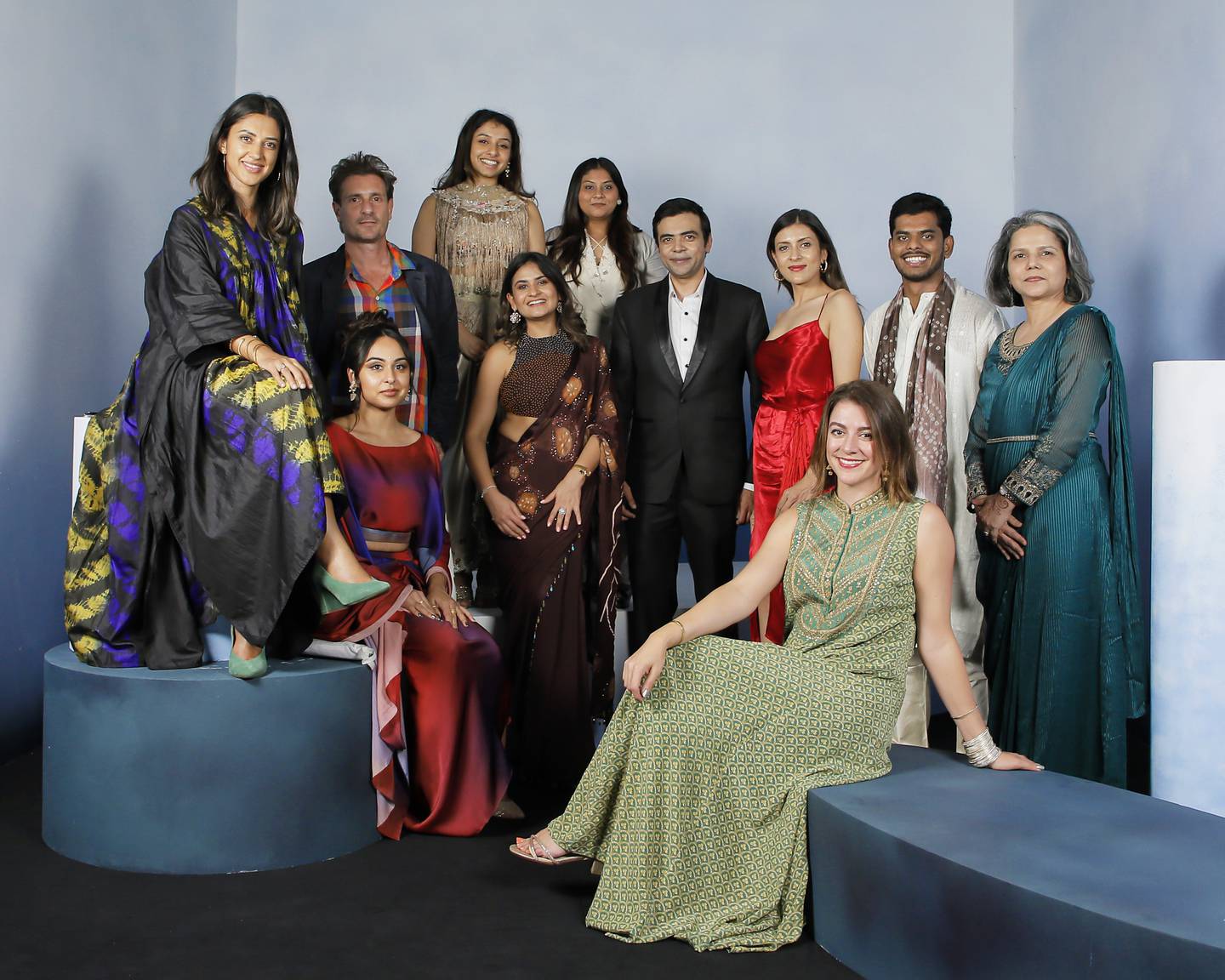
A defining aspect of the BEAUTY&YOU India Awards is that it offers grants. Winners receive grants, resources and mentorship without ELC’s NIV taking an equity stake in their business. “This programme is meant to go beyond capital — it reflects NIV’s and Nykaa’s joint conviction to give back, support creative and innovative Indian talent, and our shared ambition to create positive long-term value creation to the entire beauty ecosystem,” Randhava previously told BoF.
This year’s award winners represented some of the brightest innovators in the beauty landscape. Jean-Christophe Bonnafous, founder of Call of the Valley, won the Grow category and a prize of $150,000. Bonnafous launched the Mumbai-based perfumery in 2019 with a vision to bring single-ingredient simplicity back to beauty and highlight traditional wellness practices and centuries-old art of Indian perfumery on a global stage.
Baboski founder Hetali Kamdar won the $75,000 prize for pre-launch concepts in the Imagine category. Baboski is a luxury bath and body brand with products that are crafted using natural extracts and a proprietary EncapShield SPF technology that provides all day protection through body washes and other products.
The $50,000 Breakthrough prize for active ingredient innovation that addresses key areas of consideration for Indian consumers had joint winners. Biome Labatories, founded by Rhea Goenka, champions Indian skin inclusivity through biological innovation; Kedar Vaze and Dr. Avani Mainkar, the CEO and the director and chief scientific officer at Keva Fragrances, respectively, won for a new business model which innovates the products of one of India’s largest fragrance companies, expanding into naturally activating cosmetic products.
Not only do the winners represent breakthrough innovation from product to storytelling, but they also embody a spirt of entrepreneurship that reflects the market’s strength.
The Create category’s $50,000 prize is designed to platform the next generation of creative talent in India. Finalists were asked to submit work around the theme of ‘Experiential Beauty in India’. LA-based, London-born creative director Priya Minhas won the prize with her concept called “Honey & Mud” — a short film shot at her grandparents’ house and featuring her family members. It explores the relationship between perfume, memory, and identity through individual stories.
The Impact prize of $50,000 celebrates the most innovative corporate social responsibility (CSR) programming in the applicant field and was won by C16 Biosciences, founded by Shara Ticku, and Sohrai, co-founded by Khanak Gupta and Rupesh Pawar. C16′s proprietary technology platform uses biomanufacturing to create next-generation ingredients and materials that successfully address global environmental social and governance (ESG) challenges, including climate change, food security, the environmental and safety impacts of natural resource extraction, and more. They are the makers of Palmless — a substitute for palm oil, which continues to be used at scale in the beauty industry despite creating a greater negative impact on the environment than the global aviation industry. Sohrai is described by the company as a revolutionary beauty brand that transcends skin care, ignites change, and enriches lives.
Finally, the $10,000 Community prize for best community engagement and support was awarded to Anousha Chauhan and Shreyansh Chauhan, the co-founders of Beautywise, as well as Giti Datt, the founder of Havah. Beautywise is a dermatology-led supplement brand with the mission to empower unique beauty by incorporating sustainable, evidence-based solutions that work from within, while Havah draws from India’s rich heritage of perfumery, art, and philosophy to develop a unique perspective on fragrance’s power in contemporary life.
Randhava added about the winners this year: “The energy, opportunity and creativity in India today is inspiring. Not only do the 2023 BEAUTY&YOU winners represent breakthrough innovation from product to storytelling, but they also embody a spirt of entrepreneurship that reflects the market’s strength. The future of beauty in India is one that The Estée Lauder Companies is excited to support and champion.”
This is a sponsored feature paid for by The Estée Lauder Companies’ New Incubation Ventures as part of a BoF partnership.



